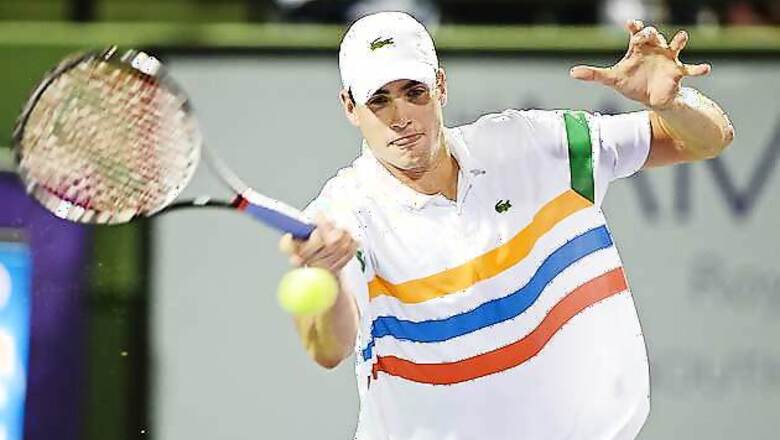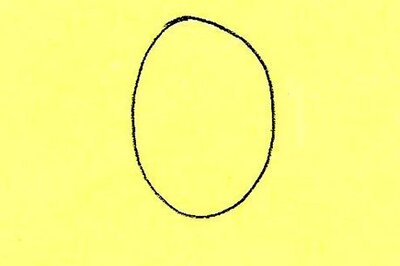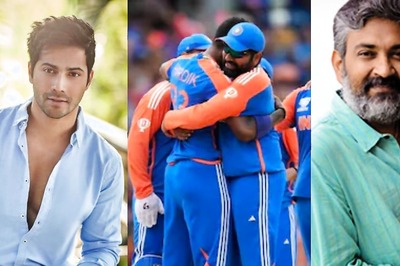
views
London: For the first time in 101 years no American will be playing in the third round of the men's singles at Wimbledon. That dismal fact was confirmed on Thursday when their last man standing, 156th ranked qualifier Bobby Reynolds, bowed out to world number one Novak Djokovic on Centre Court.
His failure completed a dismal day for the US after 33-year-old James Blake was outclassed by Australian Bernard Tomic and Denis Kulda also lost in straight sets to Croat Ivan Dodig. The statistics really do make for depressing reading.
The last time American men failed to reach the third round was 1912, when in fact none entered in the draw. In 1911, one American competed in the men's singles but perished before the third round.
The US men have now gone a record 39 grand slams in a row without a triumph - comfortably beating the 31 blanks they suffered from the 1955 US Open to Wimbledon in 1963.
BITTER BLOW
It was a bitter blow for the elegant Blake, bidding to reach the third round at the All England Club for the first time in six years. He could never get to grips with the rangy Tomic, who is 13 years his junior.
The US used to have a production line that developed glorious players such as Pete Sampras, Andre Agassi and Jim Courier who were constantly battling for the number one spot.
Not any more
Andy Roddick was the last American man to win a grand slam and hold the number one ranking in 2003 but he retired last year. Sam Querrey is their top player at 19th but lost in five sets to Australian Bernard Tomic in the Wimbledon first round.
The only other American men in the world's top 50 are John Isner (21), who retired hurt after two games of his second round match on Wednesday, and Mardy Fish (43) who was unable to play at Wimbledon due to a heart condition.
The contrast between the men's performances and the US women's game could not be sharper with defending Wimbledon champion Serena Williams so utterly dominant and a string of promising youngsters like Madison Keys coming through.
BIGGEST HEADACHE
Tennis players have become bigger and stronger but American youngsters with the right physique are attracted more to the dominant domestic sports of American football and basketball.
Former Wimbledon champion John McEnroe pinpointed that as one of the biggest headaches faced by American tennis today.
"If you want to compete and win majors at this stage, the athleticism necessary is becoming even more exceptional," he said. "That's something we have to try to search out and provide the opportunity for kids that don't have it."
Tennis also needs to increase efforts to catch them young.
"Girls are much more likely to play tennis than boys. The greatest American athletes played football or basketball. We are lower down on the totem pole," McEnroe said. "We're certainly not where we want to be, no doubt about that."
Four-times grand slam champion Courier, speaking to Reuters during a rain break at Wimbledon, said: "Mardy Fish isn't here. He would probably have done very well at this tournament. He made the fourth round last year."
However, the former Wimbledon finalist also conceded that tennis has to fight hard to attract the best American athletes who then face a battle to compete with the world's best.
"The game is international, it's tough and no one is entitled because they wear the Stars and Stripes to win a round. They have to earn it," he said.
"Tennis is about number 10 as far as popularity is concerned. Our best athletes are spread through other sports.
"There is no sense of entitlement for anybody from any nation. This is a meritocracy out here," added Courier.
The 30-year-old Reynolds could not put his finger on why his fellow American men had struggled at Wimbledon this year but said his country just did not have so many top players anymore.
"I think the USTA is doing a good job and a lot of guys are coming up. They're knocking on the doorstep of top 100," he told a news conference after his straight sets defeat by Djokovic.
"...they're young. But I think they have a lot of potential. Maybe, you know, just a couple years hopefully a good one's coming," Reynolds added.



















Comments
0 comment